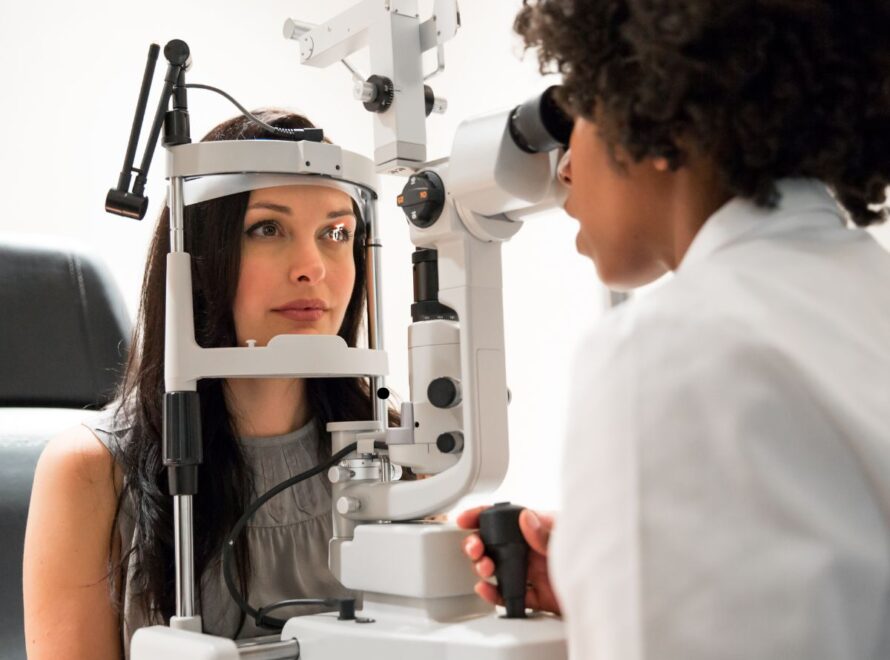In today’s digital age, the importance of reducing screentime cannot be overstated. With the increasing reliance on digital devices for work, education, and entertainment, it’s crucial to adopt habits that protect our eye health. Excessive screen exposure can lead to a range of problems, from minor discomfort to serious conditions. In this comprehensive guide, we will explore the benefits of reducing screentime and provide practical tips for maintaining healthy eyes.
Understanding the Impact of Screen time on Eye Health
Digital Eye Strain
One of the most common issues associated with prolonged screentime is digital eye strain. Symptoms include dry eyes, headaches, blurred vision, and neck and shoulder pain. The primary cause is the extended focus on screens, which reduces the blink rate and leads to dryness and irritation.
Blue Light Exposure
Screens emit blue light, which can penetrate deep into the eye and has been linked to retinal damage and macular degeneration. Blue light exposure, especially in the evening, can also disrupt sleep patterns by interfering with the production of melatonin, the sleep hormone.
Myopia in Children
There is growing evidence that increased screentime, particularly among children, is linked to the development of myopia (nearsightedness). The lack of outdoor activities and excessive close-up focus are contributing factors.
Benefits of Reducing Screentime
Improved Eye Comfort
Reducing screentime can significantly enhance eye comfort. By limiting the duration spent on screens, you can prevent the onset of digital eye strain, ensuring your eyes feel less fatigued and more relaxed.
Better Sleep Quality
Lowering screen exposure, especially before bedtime, can improve sleep quality. Reducing blue light exposure in the evening helps maintain natural circadian rhythms, promoting better and more restful sleep.
Decreased Risk of Eye Conditions
Adopting habits to reduce screentime can lower the risk of developing serious eye conditions such as macular degeneration and retinal damage. This proactive approach ensures long-term eye health and preserves vision.
Enhanced Focus and Productivity
By minimizing unnecessary screentime, you can enhance focus and productivity. Taking regular breaks from screens reduces mental fatigue, allowing for more efficient work and study sessions.
Practical Tips for Reducing Screentime
Implement the 20-20-20 Rule
A simple yet effective strategy is the 20-20-20 rule: every 20 minutes, take a 20-second break and look at something 20 feet away. This practice helps reduce eye strain and maintains eye health by regularly shifting focus.
Adjust Screen Settings
Ensure that your screen settings are optimized for eye comfort. This includes adjusting brightness to match the ambient lighting, increasing text size, and using blue light filters or glasses designed to block blue light.
Create a Screen-Free Zone
Designate certain areas in your home as screen-free zones. For instance, keep bedrooms free of screens to promote better sleep, and encourage outdoor activities and face-to-face interactions in living spaces.
Take Regular Breaks
Incorporate regular breaks into your daily routine. Stand up, stretch, and move around to reduce physical and mental fatigue. Use these breaks as opportunities to rest your eyes and shift your focus away from screens.
Limit Screen Use Before Bedtime
To improve sleep quality, avoid screens at least an hour before bedtime. Instead, engage in relaxing activities such as reading a book, meditating, or taking a warm bath to wind down.
Encourage Outdoor Activities
Spending time outdoors not only benefits overall health but also reduces the risk of developing myopia, especially in children. Encourage outdoor play and activities that do not involve screens to promote a healthy balance.
Set Screen Time Limits
Establish and adhere to daily screen time limits. This can be particularly useful for children, helping them develop healthy habits and ensuring they spend time on various activities that support their growth and development.
Maintaining a Healthy Digital Lifestyle
Use Technology Wisely
While technology is an integral part of modern life, using it wisely can mitigate its negative effects. Opt for voice commands or audio content when possible, and prioritize tasks that do not require prolonged screen exposure.
Regular Eye Check-ups
Schedule regular eye check-ups to monitor your eye health and detect any issues early. An eye care professional can provide personalized advice and recommend strategies tailored to your needs.
Educate and Advocate
Educate yourself and others about the importance of reducing screentime for eye health. Advocate for policies and practices that promote a healthy balance between digital device use and other activities.
Conclusion
Adopting habits to reduce screen time is essential for maintaining healthy eyes in our digital world. By implementing practical strategies and making conscious choices, we can protect our vision, enhance overall well-being, and improve our quality of life. Let’s commit to taking care of our eyes by reducing screen time and embracing a balanced digital lifestyle.





